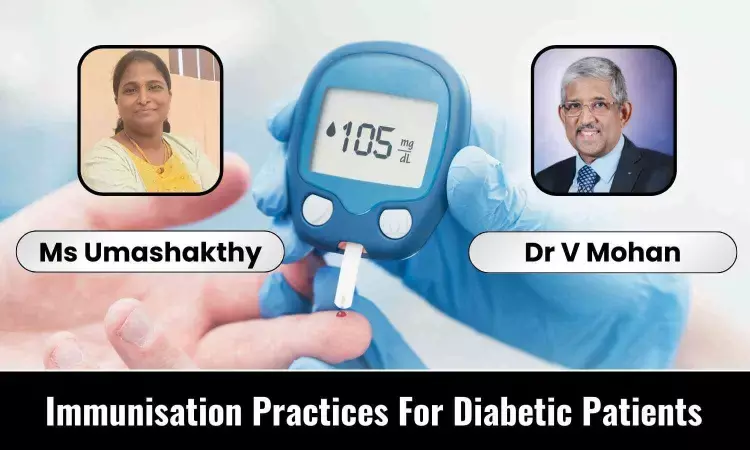- Home
- Medical news & Guidelines
- Anesthesiology
- Cardiology and CTVS
- Critical Care
- Dentistry
- Dermatology
- Diabetes and Endocrinology
- ENT
- Gastroenterology
- Medicine
- Nephrology
- Neurology
- Obstretics-Gynaecology
- Oncology
- Ophthalmology
- Orthopaedics
- Pediatrics-Neonatology
- Psychiatry
- Pulmonology
- Radiology
- Surgery
- Urology
- Laboratory Medicine
- Diet
- Nursing
- Paramedical
- Physiotherapy
- Health news
- Fact Check
- Bone Health Fact Check
- Brain Health Fact Check
- Cancer Related Fact Check
- Child Care Fact Check
- Dental and oral health fact check
- Diabetes and metabolic health fact check
- Diet and Nutrition Fact Check
- Eye and ENT Care Fact Check
- Fitness fact check
- Gut health fact check
- Heart health fact check
- Kidney health fact check
- Medical education fact check
- Men's health fact check
- Respiratory fact check
- Skin and hair care fact check
- Vaccine and Immunization fact check
- Women's health fact check
- AYUSH
- State News
- Andaman and Nicobar Islands
- Andhra Pradesh
- Arunachal Pradesh
- Assam
- Bihar
- Chandigarh
- Chattisgarh
- Dadra and Nagar Haveli
- Daman and Diu
- Delhi
- Goa
- Gujarat
- Haryana
- Himachal Pradesh
- Jammu & Kashmir
- Jharkhand
- Karnataka
- Kerala
- Ladakh
- Lakshadweep
- Madhya Pradesh
- Maharashtra
- Manipur
- Meghalaya
- Mizoram
- Nagaland
- Odisha
- Puducherry
- Punjab
- Rajasthan
- Sikkim
- Tamil Nadu
- Telangana
- Tripura
- Uttar Pradesh
- Uttrakhand
- West Bengal
- Medical Education
- Industry
Safe Immunization Practices in People with Diabetes - Dr V Mohan, Ms Umashakthy

Immunizations play a pivotal role in safeguarding individuals from potentially harmful diseases. This is particularly important for those living with diabetes, as diabetes can significantly impact the immune system, compromising the body's ability to defend itself against infections.
This article outlines the importance of vaccinations for individuals with diabetes and emphasizes safe practices for administering vaccines.
Importance of Vaccinations for People with Diabetes
Vaccinations are crucial for protecting individuals with diabetes from serious infections. Diabetes weakens the immune system, making it challenging for the body to combat illnesses. Staying current on vaccinations helps reduce the risk of complications and hospitalizations, with evidence showing that vaccines are equally effective in individuals with diabetes as in those without.
- Influenza Vaccine: An annual flu vaccine is especially critical for individuals with diabetes, given their heightened susceptibility to severe flu-related complications. Timely vaccination, preferably before the onset of the flu season, provides continuous protection against evolving influenza virus strains.
- Pneumococcal Vaccines: Pneumococcal vaccines are essential in preventing pneumonia, a potentially dangerous bacterial infection. The recommended two-dose approach, starting with PCV13 followed by PPSV23, ensures broader protection against various strains of pneumococcal bacteria.
- Hepatitis B and Tdap Vaccines: The hepatitis B vaccine guards against liver infections, that poses significant risks for those managing diabetes. A multi-dose series ensures the development of long-term immunity against hepatitis B. The Tdap vaccine protects against tetanus, diphtheria, and whooping cough.
- Zoster Vaccine: To prevent shingles, a painful condition affecting nerve health in individuals with diabetes, the zoster vaccine is recommended as a two-dose series. The second dose, administered 2 to 6 months after the first, enhances vaccine effectiveness.
Safe Practices for Administering Vaccines
Healthcare providers must adhere to specific guidelines when administering vaccines to individuals with diabetes to ensure safety and efficacy.
1. Patient Assessment: Before vaccination, physicians should assess overall health status, including blood sugar levels and diabetes-related complications. Special attention is required for type 1 diabetes patients, as their compromised immune systems may necessitate close monitoring during vaccinations.
2. Consideration of Meal Schedule and Insulin Regimen: Timing of vaccinations should align with the patient's meal schedule and insulin regimen to avoid administering vaccines during periods of significant blood glucose level fluctuations.
3. Documentation and Communication: Proper documentation and communication between healthcare providers and patients are crucial to prevent potential adverse reactions or interactions with diabetes medications.
Considerations for Different Diabetes Types
Tailoring vaccine recommendations to different diabetes types is essential. Patients at extremes of age, those with poor glucose control and those with gestational diabetes or diabetes complicating pregnancy require specific considerations in vaccine planning.
Conclusion
Collaboration between healthcare providers and patients is paramount for safe immunization practices. Through education, open communication, and personalized care, healthcare professionals can empower individuals with diabetes to protect their health against vaccine-preventable diseases. Together, we can strive for a healthier future for all.
Dr. Viswanathan Mohan, M.D., Ph.D., D.Sc., FRCP, FNA, FACE, FTWAS, MACP is an internationally acclaimed Diabetologist and Scientist. He is the President & Chief of Diabetes Research, Madras Diabetes Research Foundation. He is also the Chairman & Chief Diabetologist of Dr. Mohan’s Diabetes Specialities Centre, Chennai. In 2012, Dr. Mohan was awarded the Padma Shri, one of the highest civilian award of the Govt. of India. He is also a member of the advisory board of Medical Dialogues.
Ms Umashakthy (M.Sc. Registered Dietitian, D.N&D, Pg.DDE) is a Dietician, Assistant manager and a Diabetes Educator at Dr. Mohan’s Diabetes Specialties Centre, Gopalapuram Head office, Chennai. She has over 20 years of experience in the field. Her specialisations include Nutrition Assessment, Diet Counselling, Optimal Nutrition Plans, Therapeutic Diet, Family Diet Planning, Dietary Creation, Lifestyle Modification, Customer Services, Supplements Evaluation, Nutritional Risk Management.


